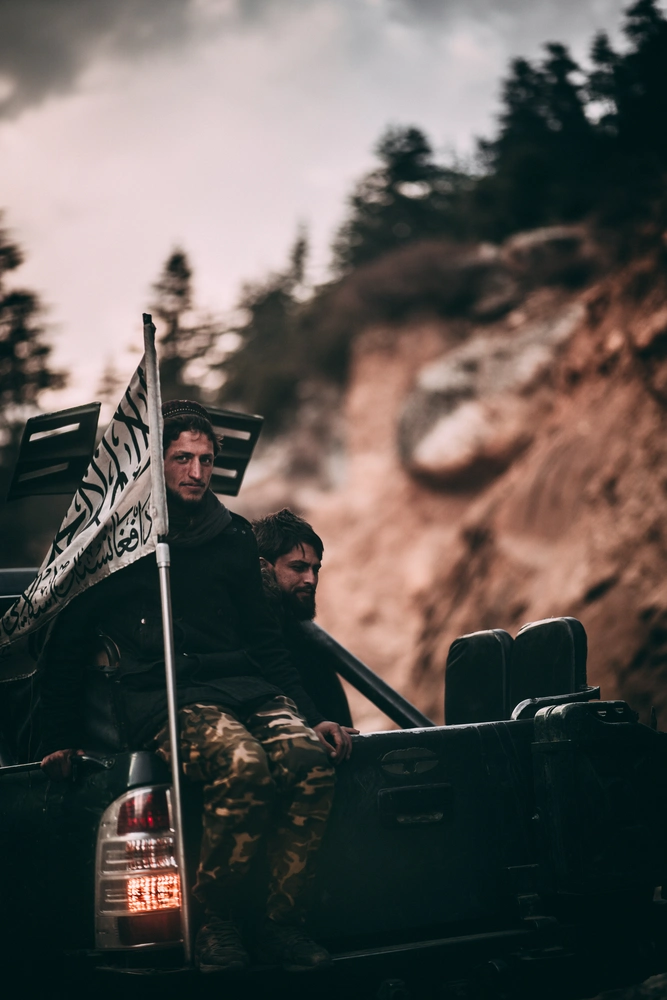
33.9391° N, 67.7100° E
On August 30, 2021, the United States Armed Forces completed their final withdrawal from Afghanistan, ending a two-decade-long military engagement. For the first time in decades, a fragile peace seemed to settle over the country. By December 2023, I embarked on a journalistic journey through Afghanistan to explore if a group that spent 20 years in the mountains fighting the West can govern a country well – and to question whether this peace is a new beginning or merely another chapter in a long history of conflict in a country that’s essentially destroyed
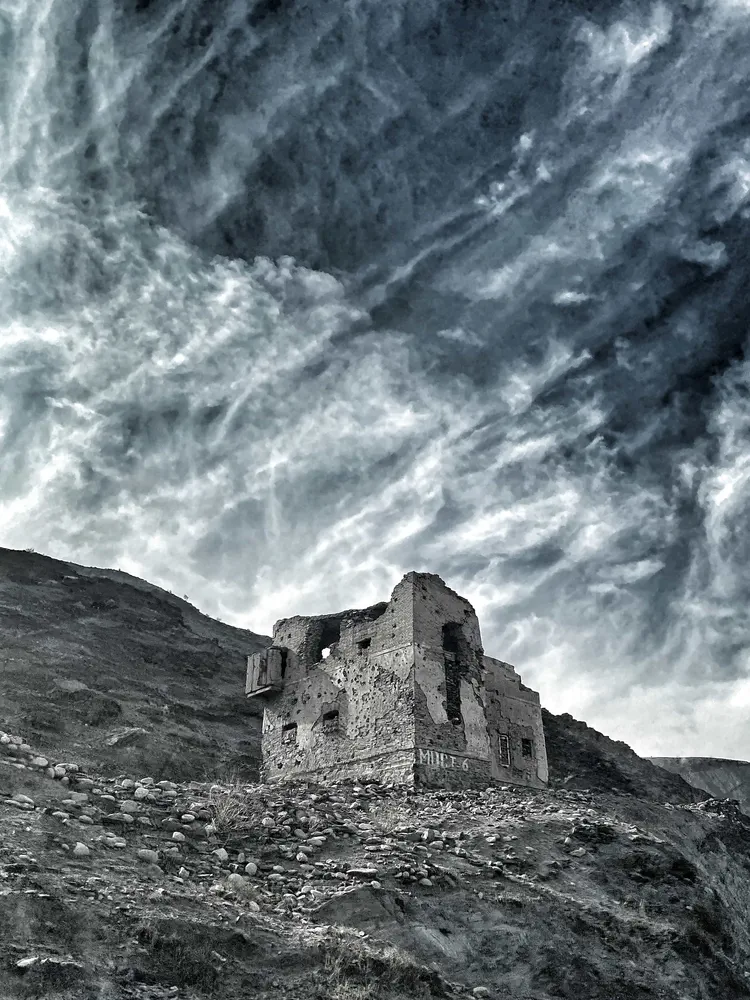
Opinions among Afghans are divided. They traded 20 years of democracy and conflict for a regime with no democracy but peace. Many soldiers laid down their arms as the Americans withdrew, seeking a quieter life (or simply ran out of ammunition)
Understanding Afghanistan means recognizing its intricate web of personal connections; everyone knows each other. Through people I accidentally met, I accessed top officials for interviews, reflecting on how these connections shape Afghan society.
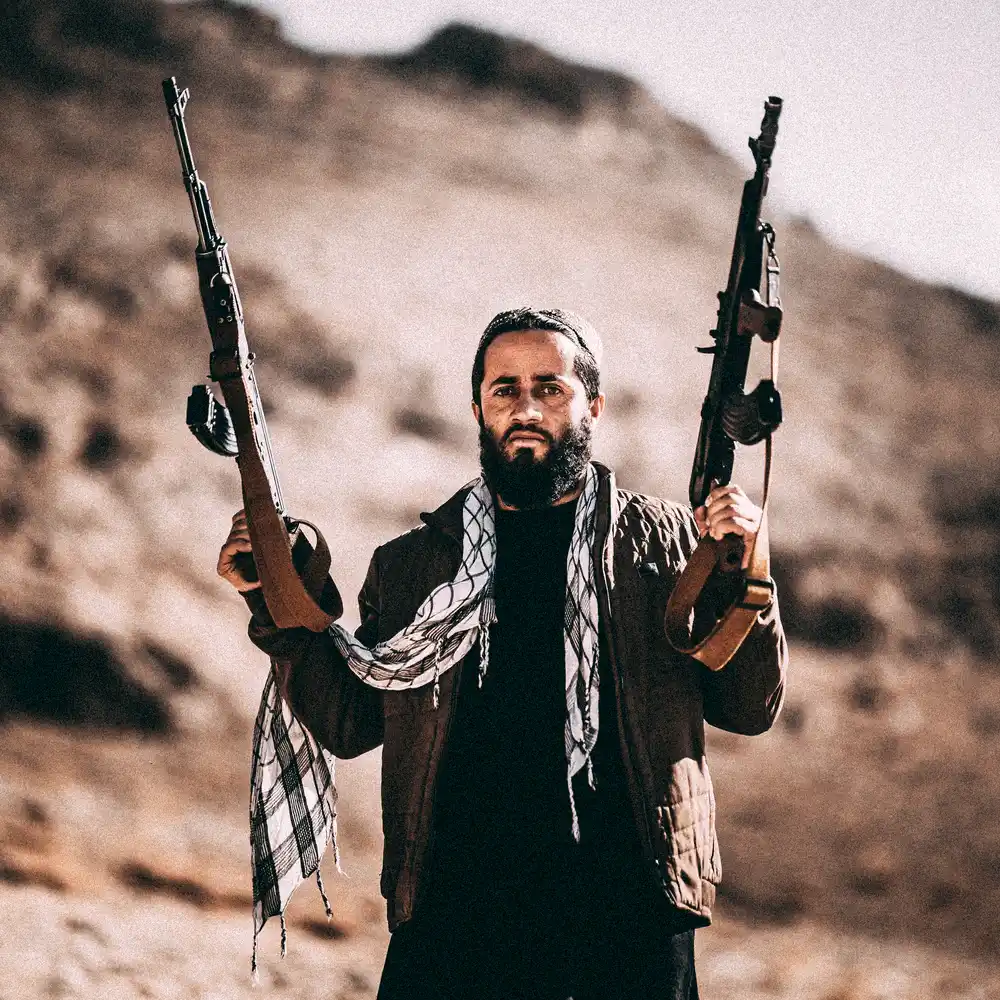
Interview
Baryal and the militants he oversaw were “involved in the supervision of IED [improvised explosive device] production, suicide personnel allocation, and overall attack planning and execution” in Kabul and surrounding provinces, according to U.S. military reports.
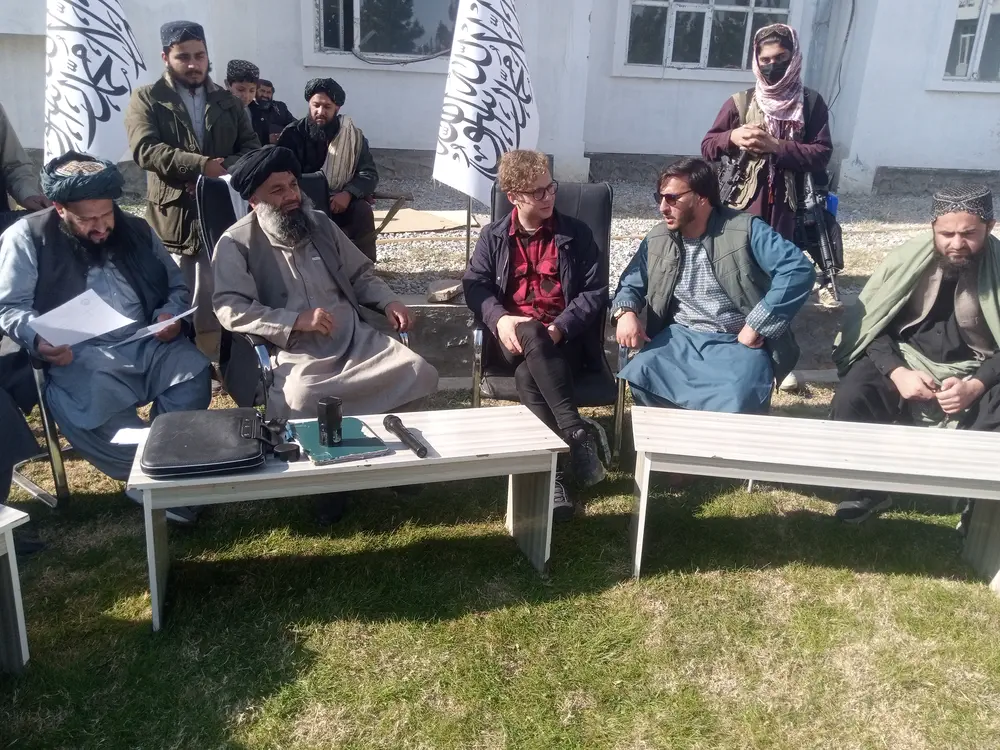
Me (centre) with the governor of Kapisa – Qari Baryal (left) “double-hatted” al-Qaida and Taliban leader “most-wanted” for 15+ years by Washington
35.0243° N, 69.3517° E
In interviews with several governors and the heads of police, I asked them about their policies and what they would do with the millions of unemployed young people – if they would use them to build up the country the way the government wanted it. There was mostly a lot of talk about Islam and being glad they became leaders but the essence of it was
“We will finally do things ourselves after 40 years of foreign interference”
and also
“We will allow any NGO to come here and do the work needed”.
The moment I tried pressing to specific projects or policies – my translator pressed me to stop talking immediately.
Freedom of the press isn’t a thing in this country. When a journalist friend of mine had pressed the Taliban spokesman on TV about when they would reinstate the girl’s education and had pressed on about it – he was basically a dead man. Only through pulling some powerful strings, he was able to stay alive and be left with a warning.
With basically no real answer about their specific policies – but a lot of stories of kidnapping and torturing a journalist who later joined the “beautiful religion of Islam” while being imprisoned. I had to look into things myself, in sometimes chaotic and creative ways and piece the puzzle together.
Religion
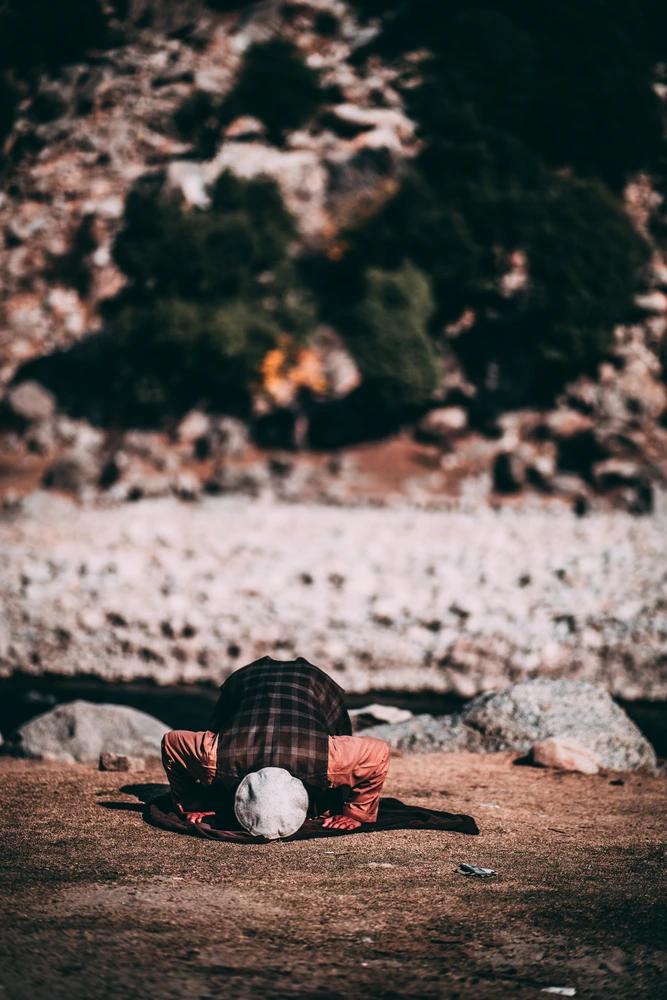
A Muslim man praying on the side of a mountain road – in Nuristan province
The Taliban, rooted in a strict interpretation of Sunni Islam and the Deobandi school of thought, prioritize religion above all else, shaping their governance with stringent Sharia (religious) law. For the Taliban, religious practice is the core of their existence and replaces most (if not all) of the other cultural elements, with high-ranking members often expressing their purpose in life as the ability to pray five times a day and recite the Holy Quran.
Their survival over the past 20-odd years, often in harsh mountain conditions, is attributed to sheer religious determination. They told me that only occasionally they could use the money donated by the community to buy food. While ordinary education was largely unavailable, many received religious education in madrassas, which played a significant role in their radicalization. This militant religious foundation has unified the Taliban and legitimized their actions, making religion central to their identity and vision for Afghanistan. When other authorities failed or were corrupted, the people usually flock to the one thing that’s still standing – religion and their authorities (also see post-revolution Iran)
Weapon culture
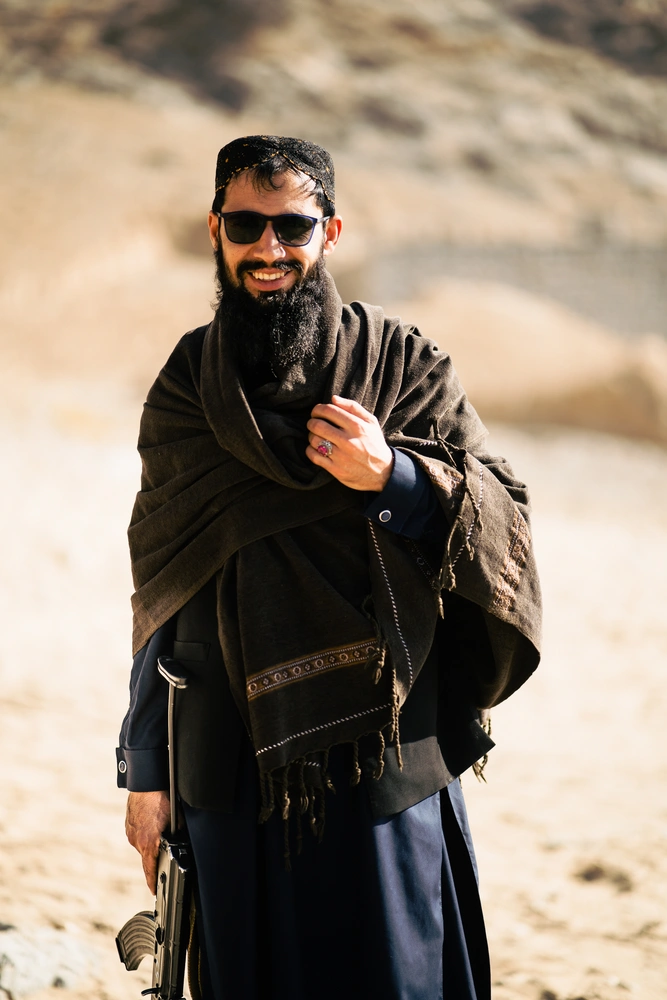
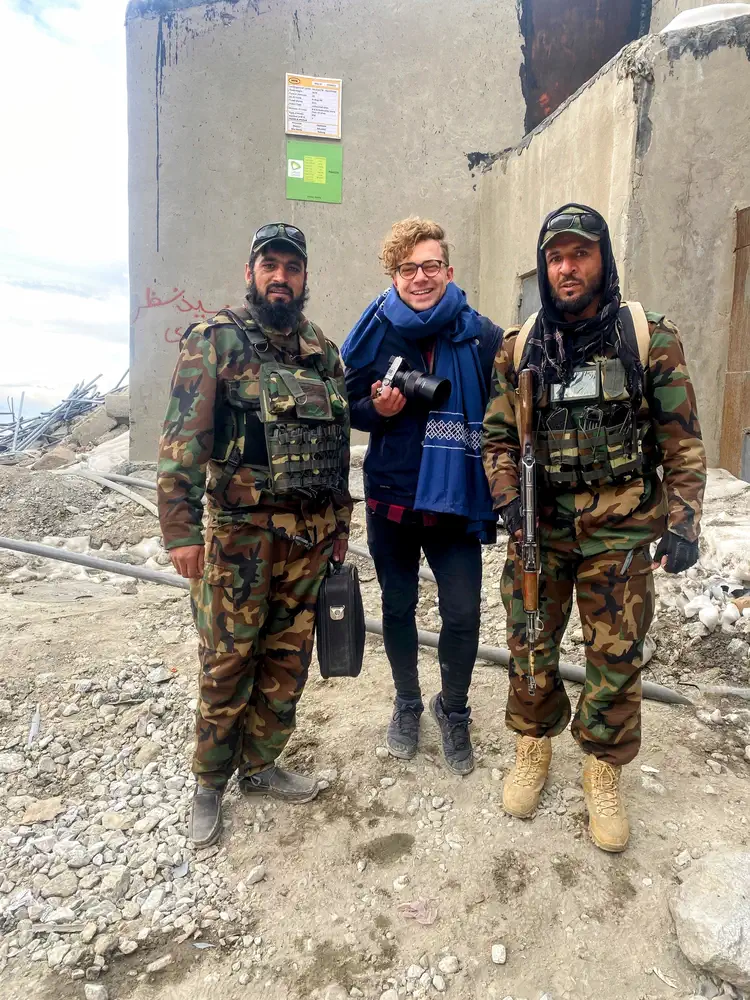
Guns are everything to the Mujahideen fighters and especially to the Taliban. They are how you control a population and kill invaders. Some of these guys have spent many years in the mountains killing Americans and they carried their guns with them at any moment. Others had just recently joined so they could work for the electricity department, these also carried their guns constantly with them. While the most common ones were variations of the AK-47, 74 and other Chinese copies which are easy to obtain – the Americans in their quick retreat of the country left a variety of weapons behind.
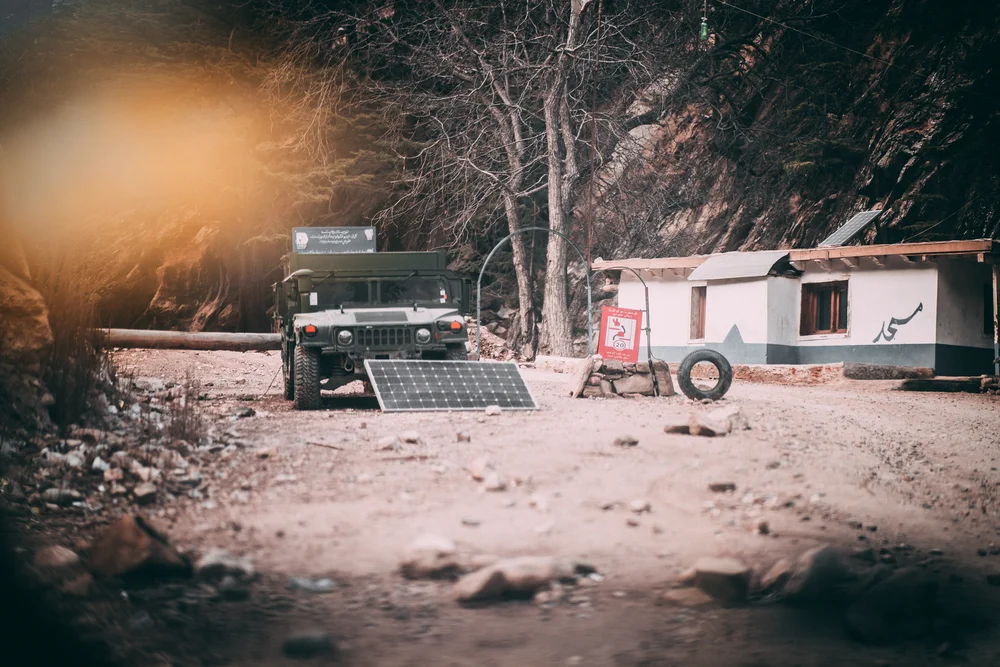
American humvee
American Humvee
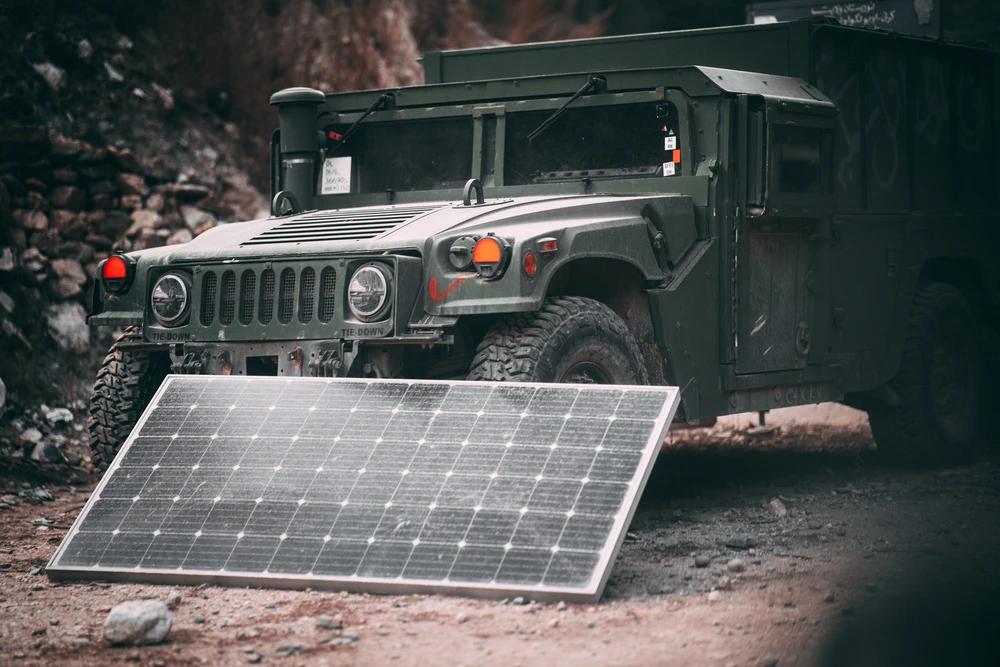
I wasn’t allowed to take any photos of military checkpoints – and thus only have a selective number of pictures, but the amount of American Humvees just lying around in the country is astonishing. I witnessed a lot of heavy military machinery, yet two years after the Americans left, I haven’t seen a single driving one. Perhaps people who spend 20 years in the mountains fighting don’t know how to fix a high-tech military vehicle.
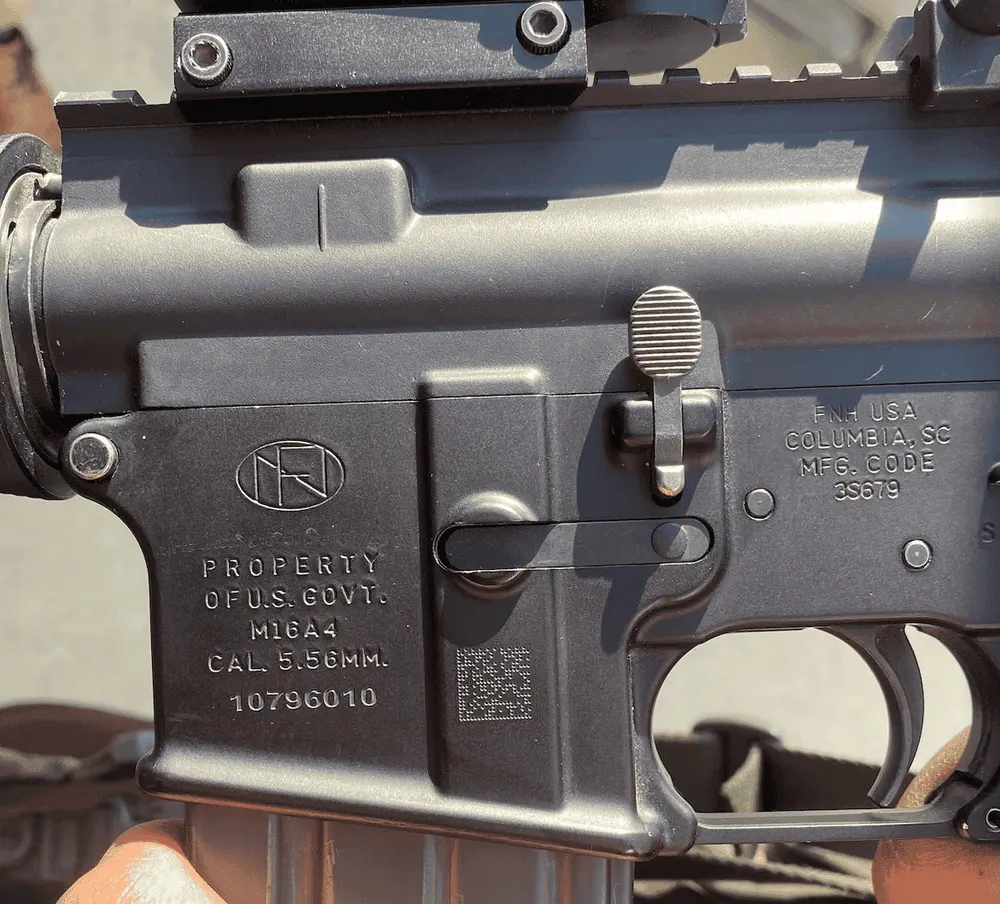
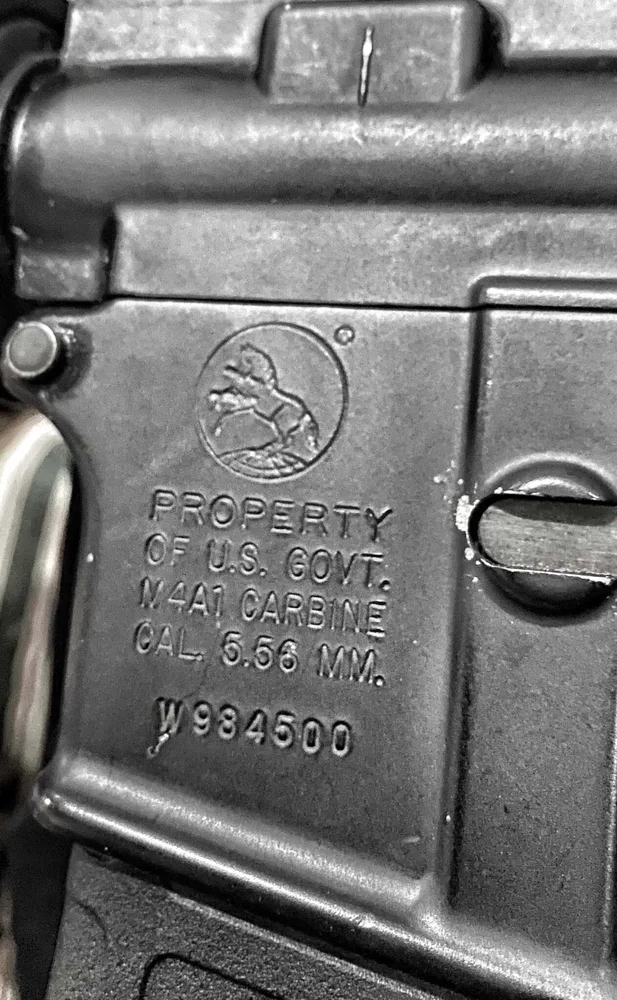
Looking closely at some of these guns shows the following:
“Property of U.S. GOVT. M16A4 cal 5.56MM” – in Kapisa province Afghanistan. Purely leftover weaponry from the Americans
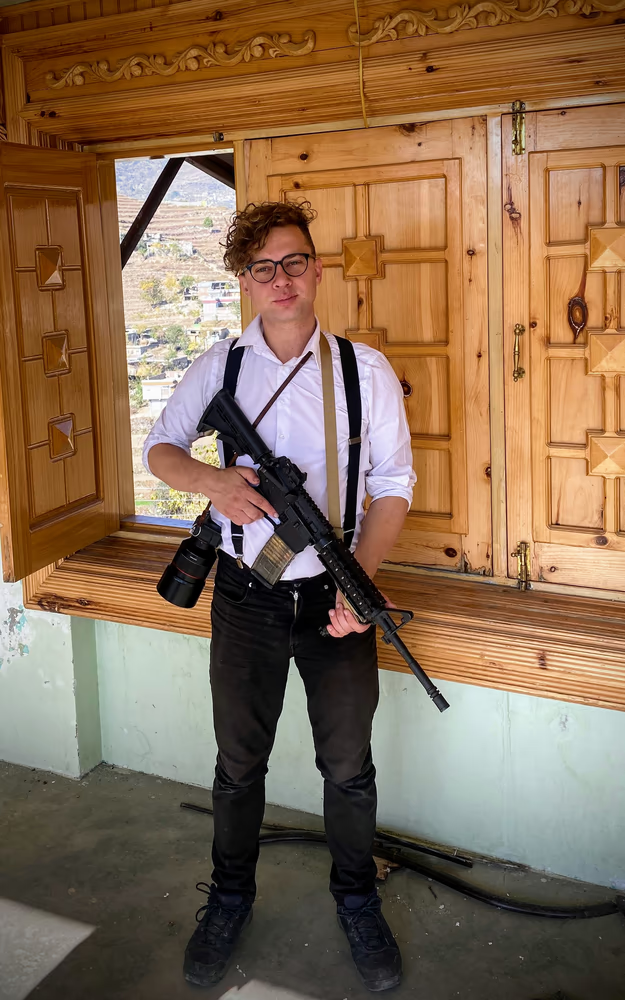
Man holding American gun
Man holding two guns
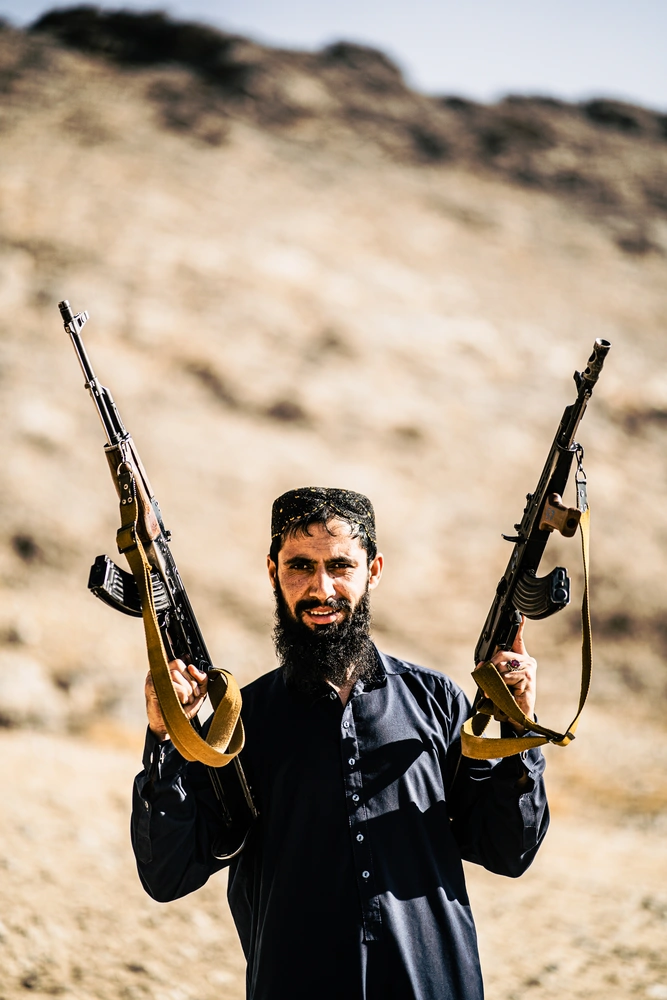
Because the economy is so bad, many of these guns make it to Pakistan on the black market – this one was bought for around 2000$ – enough to survive for months in Afghanistan. The buyer was from an influential family in Swat, Pakistan where I was a guest – they did make me dress up with it and take a photo. Only a few years ago, the Taliban was kicked out of that region, after having invaded it.
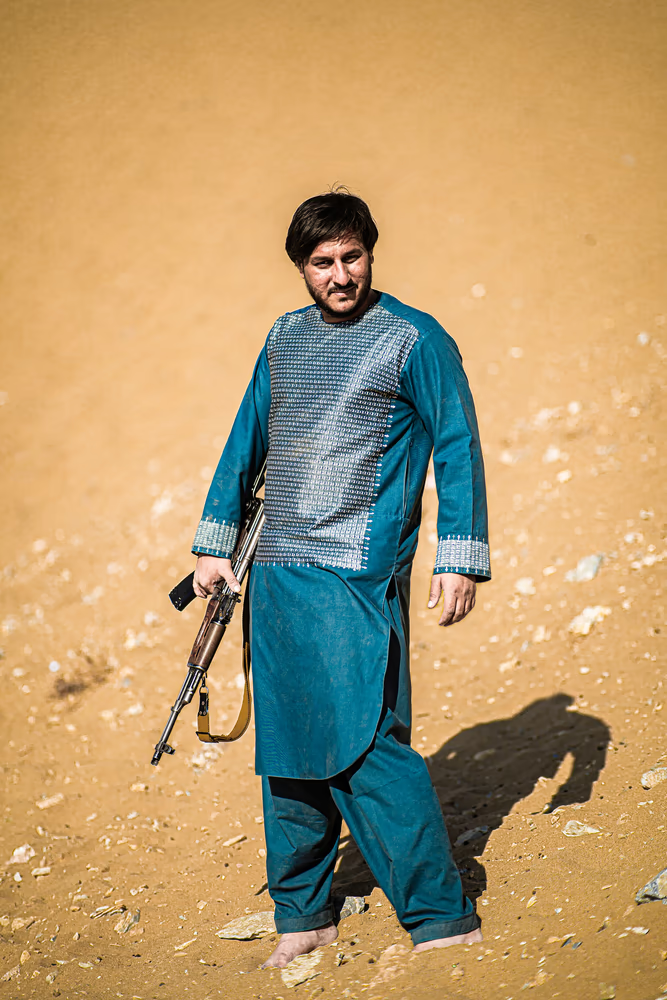
Former NATO translator
Even the locals are extremely fond of their guns. This one had been a translator for Nato forces and was allowed to leave the country for the USA (2.5 years too late).
He acted as my translator in several longer talks. The reason I can write about him now (and why the article is delayed), is because he moved his family to the west now – never to return.
People
The Afghans are incredibly diverse due to many empires marching through the lands over the last few thousand years—both the Taliban and the locals.
I was invited to a wedding by a known person in Kabul, and there were many high-ranking Taliban officials attending. Yet with music, dancing and mixing of men and women in the same room forbidden – it was the most boring wedding I had ever seen – a stark contrast to the Pashtun weddings and music I had witnessed in neighbouring Pakistan. An influential critic attended the wedding and I had a chance to talk to him – he was one of the last people who still publicly spoke out against banning girls from going to school. His fame kept him alive – so to say. His eyes showed the constant pressure he was in and all he had to say to me was that he was hoping for a better future and remained fighting till his dying breath for what he believed in – a moment afterwards his people signalled he had to leave – now.
Taliban
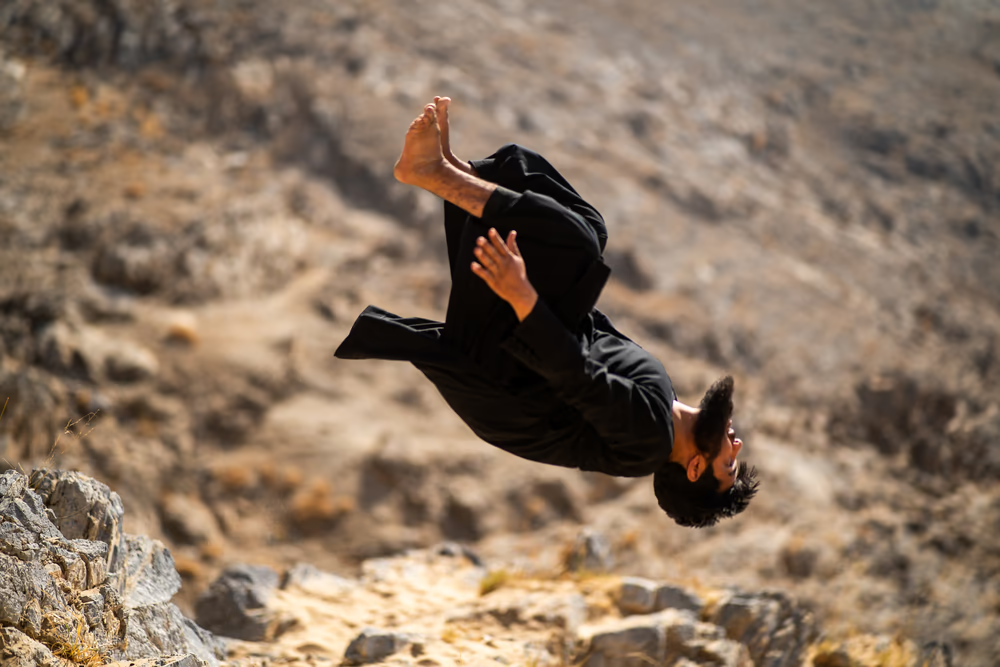
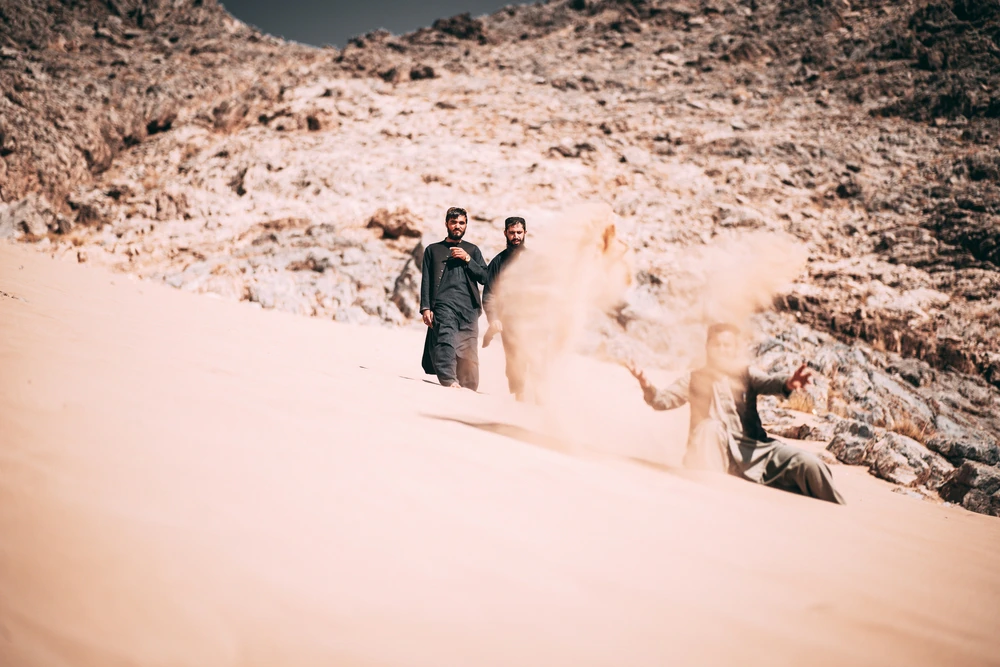
And even the Taliban themselves aren’t a monolith – there are hardliners and softliners, and many are only Taliban in name only.
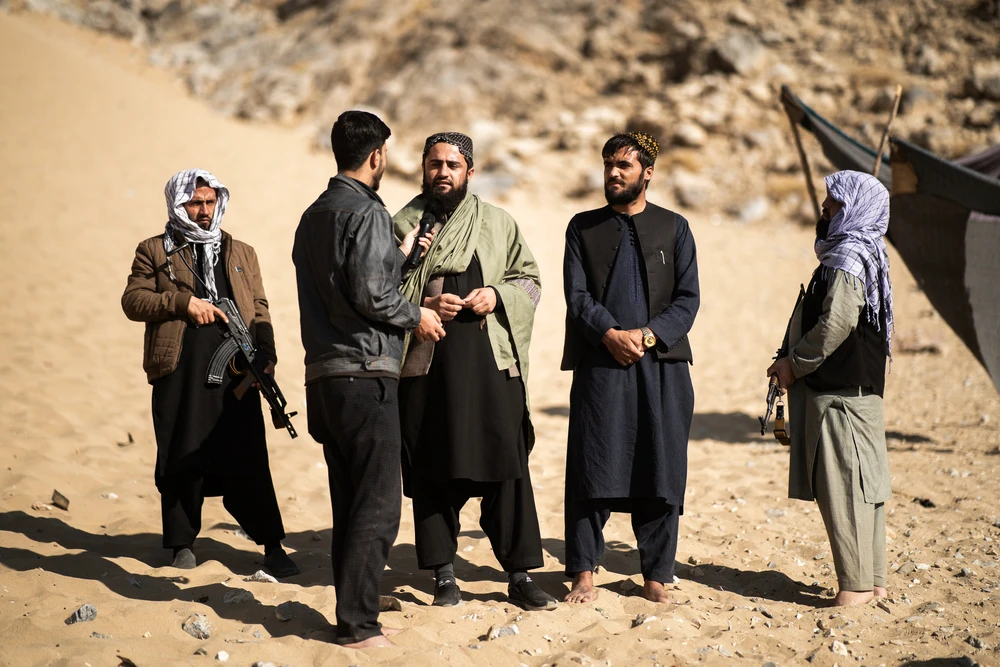
Some Taliban members joined us for a road trip to film a TV program in a beautiful place in the mountains. I slept in their houses and ate dinner with them. Most of them simply joined the organisation to get work. While they are all Muslim, these guys were in favour of girls getting an education. Carefully asking around supplied me the information that many low-level Taliban are in favour of it, but the top simply won’t budge.
This ‘gentleman’ was different – so my sources (journalists) said. He had quite a bit of a history of violence, apparently having killed dozens of Afghans and 10 French soldiers. They say that he lost his mind afterwards. He didn’t speak a single word while I was there in Kapisa province.
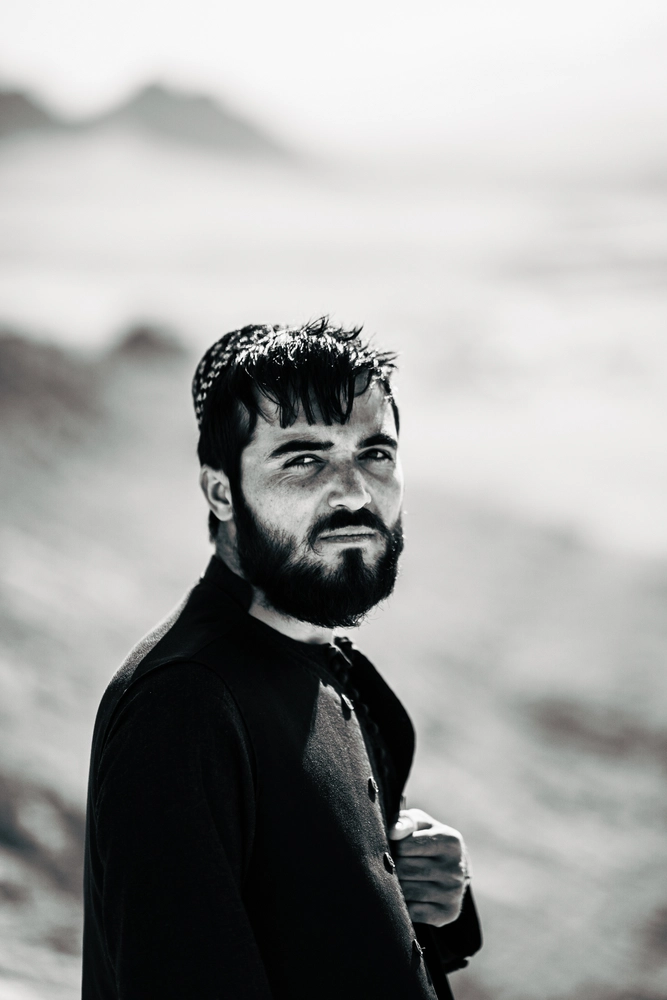
Taliban fighter
But knowing that many of these boys are lured into the Taliban at a very young age, I question if this was a monster of a victim himself. Some searching online showed that the previously interviewed Governor of that province may have been the one responsible.
In 2008, [Qari Baryal] directed the Uzbin Valley ambush that killed 10 French soldiers.
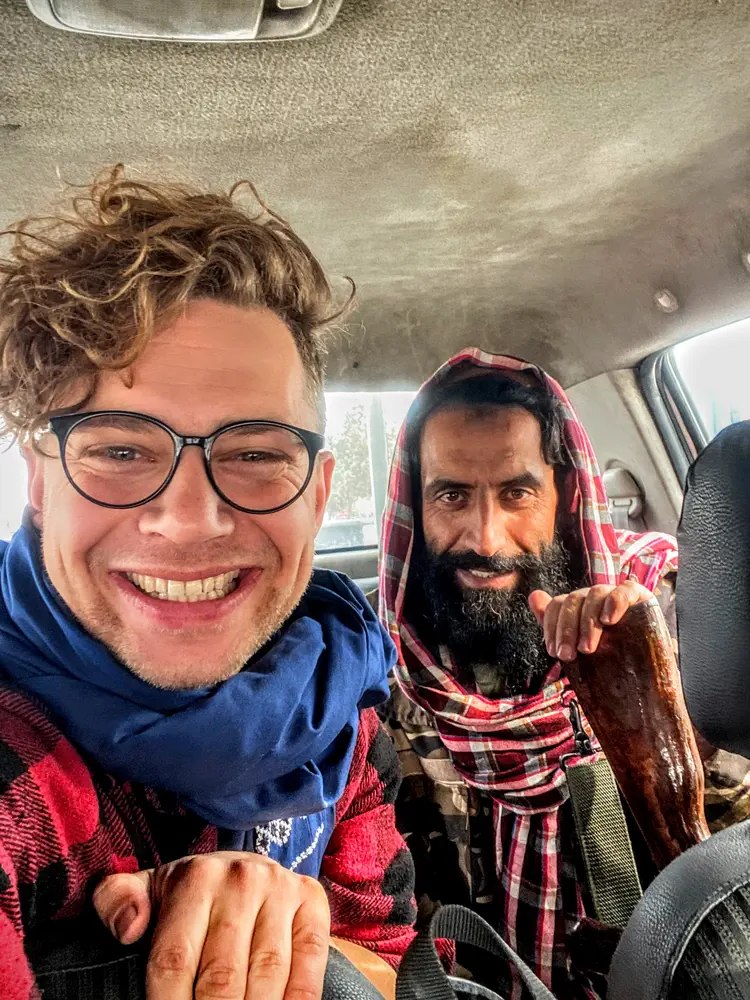
These fighters nearly executed me after dragging me out of a taxi in Kabul and suspecting me of being a foreign spy – a shouting match between me and people who spent 20 years in the mountains killing foreigners ended after I told them I had the rights to be here because I was a personal friend of the Governor of Kapisa, the minister of culture and the Head of police of the Pansjir valley. They thought I was bluffing and asked for proof – After pulling out my phone [which they wanted to confiscate] and showing them the photos, they realized their mistake and gave me burgers and fries. I decided to take this photo while smiling at the face of death.
This came a day after I had witnessed 2 public executions north of Kabul – where they executed “Enemies of the state” – according to my journalist contacts in the car.
To be continued in part two: Afghans